- Home
- Jack Higgins
Year Of The Tiger Page 4
Year Of The Tiger Read online
Page 4
“Now, you’ve completely lost me,” Chavasse said.
“It doesn’t matter.” Craig smiled. “Probably only six brains on earth were capable of understanding his theory at the time, such was its complexity. It aroused considerable interest in academic circles and was then virtually forgotten. It was only theoretical, you see. It led nowhere and had no conceivable practical application.”
“And now he’s taken it one stage further,” Chavasse said. “Is that what you’re leading up to?”
Craig nodded. “He mentioned in his letter, quite casually I might add, that he had reached the solution to the problem. He has proved that space can be twisted, manipulated if you like, until it becomes an energy field.”
“And this is really important?” Chavasse said.
“Important?” The professor sighed. “For one thing, it relegates nuclear physics to roughly the Eocene Age of science. For another, it gives us an entirely new concept of space travel. We could produce an energy drive for our rockets from space itself, something that would be infinitely superior to the Russian concept of the ionic drive.”
“Do you think Hoffner has any idea of the important of his discovery?” Chavasse said.
Craig shook his head. “Given his circumstances, I don’t think he is even aware that orbital flights have taken place. If he knew that man had already crossed the space threshold, the value of his discovery would be at once obvious to him.”
“It’s incredible,” Chavasse said. “Quite incredible.”
“What’s even more to the point is that knowing this does us no damn good at all as long as the know-how remains locked in the brain of a sick old man under house arrest in a Communist-dominated country,” the Chief said. “We’ve got to get him out, Paul.”
Chavasse sighed. “Well, I was begging for action,” he said, “and now I’ve got it, though how the hell I’m supposed to pull it off, I don’t know.”
“I’ve already given that quite some thought.” The Chief pushed the chessboard out of the way and unfolded a large map.
“Now this is the area involved – Kashmir and western Tibet. Changu is about a hundred and fifty miles from the border. You’ll notice that some fifty miles into Tibet, there’s a village called Rudok. In his despatch the other day, Ferguson had already informed me that, according to the young Tibetan nobleman who brought out the letter, the Chinese have little control of the area. He says the monastery outside Rudok is quite a centre of resistance. If we could get you there, you’d at least have a base. Of course, from then on, you’d have to play it by ear.”
“Two obvious points,” Chavasse said. “How do I get in and how do I get the locals to accept me if I do?”
“That’s all arranged,” the Chief said. “Since yesterday evening when Professor Craig first came to me to point out that there was more in the letter than met the eye, I’ve used the special line to speak to Ferguson in Srinagar no fewer than four times. He’s arranged for this young Tibetan to go in with you.”
“And what about transportation?”
“We’ll fly you in.”
Chavasse frowned. “Are you sure it’s possible from Kashmir? The Ladakh range is a hell of a height.”
“Ferguson’s dug up a bush pilot named Jan Kerensky. He’s a Pole – flew for the R.A.F. during the war. He’s doing government work in the area, aerial reconnaissance and so forth. Apparently, there’s an old R.A.F. emergency airstrip outside Leh which he sometimes uses. That’s only eighty or ninety miles from the Tibetan border. We’ve offered him five thousand to fly you in and land you at this monastery near Rudok and another five to pick you up again exactly one week later.”
“Does he think he can do it?”
The Chief nodded. “He says it’s possible, no more than that. You’re obviously going to need a hell of a lot of luck.”
“You can say that again,” Chavasse told him. “When do I go?”
“There’s a Vulcan bomber leaving R.A.F. Edgeworth at nine for Singapore. It’ll drop you off at Aden. You can fly on to Kashmir from there.”
The Chief got to his feet and said briskly, “I don’t think there’s anything more we can do here, Professor. I’ll take you home. You look as if you could do with some sleep.”
As Craig started to get up, Chavasse said quickly, “Just a moment, Professor, if you don’t mind.” Craig sat down again and Chavasse went on, “There’s always the question of how I’m to identify myself to Doctor Hoffner. I’ve got to make him believe beyond a shadow of a doubt that I’m absolutely genuine. Can you suggest anything?”
Craig stared into space for a moment, a slight frown on his face, and then, quite suddenly, he smiled. “There is something in Karl Koffner’s past which only he and I know,” he said. “We were in love with the same girl. There was a certain May evening at his rooms in Cambridge when we decided to settle the matter once and for all. She was sitting in the garden and on the toss of a coin, Karl went out to her first. I’ll never forget the look on his face when he returned. Later, as I stood in the garden with her after she’d promised to become my wife, he sat in the darkness inside and played the Moonlight Sonata. He was a superb pianist.”
“Thank you, sir,” Chavasse said gently.
“A long, long time ago, young man, but he’ll remember every detail of that night. I know I do.” Craig stood up and held out his hand. “I can only wish you luck, Mr. Chavasse. I hope to see you again, very soon.”
As Craig picked up his coat, the Chief turned to Chavasse briskly and smiled. “Well, Paul, it’s going to be a tough one, but just remember how important this is to all of us. Jean’s going to stay and cook you a meal and so on. She’ll drive you to Edgeworth and see you off. Sorry I can’t come myself, but I’ve an important conference at the Foreign Office at nine-thirty.”
“That’s all right, sir,” Chavasse said.
The Chief ushered Craig to the door, opened it and turned. He seemed to be about to say something else and then thought better of it and closed the door gently behind him.
Chavasse stood in the middle of the room for a long moment after they had gone, and then he lit a cigarette and went back into the kitchen.
Jean Frazer was making a bacon and egg fry.
She turned and wrinkled her nose. “Better have a shower. You look awful.”
“So would you if you’d been handed a job like this,” he said. “What’s happened to the coffee, anyway?”
“I didn’t want to disturb you.” She hesitated and came towards him, smoothing her palms nervously along her thighs. “It’s not so good, is it, Paul?”
“It shines,” he said. “Putting it mildly.” He grinned crookedly. “Sometimes I wonder why I ever got mixed up in this crazy business.”
Suddenly, she seemed close to tears. He bent down quickly and kissed her on the mouth. “Give me ten minutes to shower and change and I’ll have breakfast with you. Afterwards, you can drive me to my doom.”
She turned away quickly and he went back into the living room and started to take off his tie. He opened the window and stood there for a moment, breathing in the raw freshness of the rain, and suddenly he felt exhilarated – tremendously exhilarated. It was the first time in two months that he had felt really alive. When he went into the bathroom, he was whistling.
INDIA TIBET 1962
4
When Chavasse crossed the tarmac at Srinagar airport the following morning, Ferguson was waiting by the gate, a tall, greying man in his middle forties who looked cool and immaculate in a white linen suit.
He grinned and shook hands. “It’s been a long time, Paul. How are you?”
Chavasse was tired and his suit looked as if it had been slept in, but he managed a smile. “Bloody awful. I caught my flight out of Aden on time, but we ran into an electric storm and I missed my connection in Delhi. Had to hang around for hours waiting for a plane out.”
“What you need is a shower and a stiff drink,” Ferguson told him. “Any luggage?”
&
nbsp; “I’m travelling light this trip.” Chavasse held up his canvas grip. “I’m relying on you to supply me with the sort of outfit I’m going to need.”
“I’ve already got it in hand,” Ferguson said. “Let’s get out of here. My car’s parked just outside.”
As they drove into Srinagar, Chavasse lit a cigarette and looked out the window at the great white peaks of the mountains, outlined like a jagged frieze against the vivid blue sky. “So this is the Vale of Kashmir?”
“Disappointed?” said Ferguson.
“On the contrary,” Chavasse told him. “None of the books I’ve read do it justice. How long have you been here?”
“About eighteen months.” Ferguson grinned. “Oh, I know I’ve been put out to pasture, but I’m not complaining. I’m strictly a deskman from now on.”
“How’s the leg these days?”
Ferguson shrugged. “Could be worse. Sometimes I imagine it’s still there, but they say that kind of hallucination can last for years.”
They slowed down as the car nosed its way carefully through the narrow streets of a bazaar, and Chavasse looked out into the milling crowd and thought about Ferguson. A good, efficient agent, one of the best the Bureau had until someone had tossed that grenade through his bedroom window one dark night in Algiers. It was the sort of thing that could have happened to anybody. No matter how good you were, or how careful, sooner or later your number came out of the box.
He pushed the thought away and lit another cigarette. “This flier you’ve dug up – Kerensky? Is he reliable?”
“One of the best pilots I’ve ever come across,” Ferguson said. “Squadron leader in the R.A.F. during the war, decorated by everybody in sight. He’s been out here for about five years.”
“How’s he doing?”
“Can’t go wrong, really. This mountain flying is pretty tricky; he doesn’t exactly have to worry about competition.”
“And he thinks he can fly me in?”
Ferguson grinned. “For the kind of money we’re paying him, he’d have a pretty good try at a round trip to hell. He’s that kind of man.”
“Does he live here in Srinagar?”
Ferguson nodded. “Has a houseboat on the river. Only five minutes from my place, as a matter of fact.”
They were driving out through the other side of the city, and now Ferguson slowed and turned the car into the driveway of a pleasant, white-painted bungalow. A houseboy in scarlet turban and white drill ran down the steps from the verandah and relieved Chavasse of the canvas grip.
Inside it was cool and dark, with venetian blinds covering the windows, and Ferguson led the way into a bathroom that was white-tiled and gleaming, startling in its modernity.
“I think you’ll find everything you need,” he said. “I’ve told the boy to lay out some fresh clothes for you. I’ll be on the terrace.”
When Ferguson had gone, Chavasse examined himself in the mirror. His eyes were slightly bloodshot, his face was lined with fatigue, and he badly needed a shave. He sighed heavily and started to undress.
When he went out on the terrace twenty minutes later, dressed in cotton slacks and a clean white shirt, his hair still damp from the shower, he felt like a different man. Ferguson sat at a small table shaded by a gaudy umbrella. Beneath the terrace, the garden ran all the way down to the River Jhelum.
“Quite a view you’ve got,” Chavasse said.
Ferguson nodded. “It’s even nicer in the evening. When the sun goes down over the mountains, it’s quite a sight, believe me.” The houseboy appeared, holding a tray on which stood two tall glasses beaded with frosted moisture. Chavasse picked one up, took a quick swallow and sighed with pleasure. “That’s all I needed. Now I feel human again.”
“We aim to please,” Ferguson said. “Would you like something to eat?”
“I had a meal on the plane,” Chavasse said. “I’d like to see Kerensky as soon as possible, if that’s all right with you.”
“Suits me,” Ferguson said, and rose to his feet and led the way down a flight of shallow stone steps to the sunbaked lawn.
As they passed through a wicker gate and turned on to the towpath, Chavasse said, “What about the Tibetan? What’s he like?”
“Joro?” Ferguson said. “I think you’ll be impressed. He’s about thirty, remarkably intelligent and speaks good English. Apparently, Hoffner arranged for him to spend three years at a mission school in Delhi when he was a kid. He thinks the world of the old man.”
“Where is he now?”
“Living in an encampment outside the city with some fellow countrymen. Plenty of refugees trailing into Kashmir from across the border these days.” He pointed suddenly. “There’s Kerensky now.”
The red and gold houseboat was moored to the riverbank about forty yards away. The man who stood on the cabin roof was wearing only bathing shorts. As Ferguson and Chavasse approached, he dived cleanly into the water.
Ferguson negotiated the narrow gangplank with some difficulty because of his leg, so Chavasse took the lead and gave him a hand down to the deck. It had been scrubbed to a dazzling whiteness; in fact, the whole boat was in beautiful condition.
“What’s it like below?” Chavasse asked. “First-rate!” Ferguson told him. “A lot of people spend their vacation in one of these things every year.”
Several cane chairs and a table were grouped under an awning by the stern and they sat down and waited for Kerensky, who had seen them and was returning to the boat in a fast, but effortless, crawl. He pulled himself over the rail, water streaming from his squat, powerful body, and grinned. “Ah, Mr. Ferguson, the man with all the money. I was beginning to give you up.”
“My friend missed his plane in Delhi,” Ferguson told him.
Jan Kerensky had an engagingly ugly face topped by a stubble of iron grey hair, and when he smiled, his skin creased in a thousand wrinkles. “I hope he’s got strong nerves.” He turned to Chavasse. “You’re going to need them where we’re going.”
Chavasse took an instant liking to the man. “According to Ferguson I couldn’t be in better hands.”
Kerensky’s teeth flashed in a wide grin. “I’m inclined to agree with him, but you’d better reserve your judgment. Excuse me a moment.”
He padded across the deck and vanished below. “Quite a character,” Chavasse said.
“And then some,” Ferguson said. “If anyone can get you there, he can.”
When Kerensky came back on deck, he carried a tray of drinks and a large, folded map. He placed the tray on the table and sat down. “Iced vodka, my friends. The best drink in the world.”
Chavasse took a long swallow. “Polish, isn’t it?”
“But of course,” Kerensky told him. “Only the best for Kerensky. A man needs it in this climate to help keep him in shape.” He slapped his brawny chest with one hand. “Not bad for forty-five, eh, Mr. Chavasse?”
Chavasse managed to keep his face straight, but it was quite an effort. “I’m impressed.”
Kerensky pushed the tray out of the way and unfolded the map. “Let’s get down to business. Ferguson says you’ve been inside Tibet before?”
“Only the southeast,” Chavasse told him.
“The west is different,” Kerensky said. “Nearly all of it is fifteen, maybe sixteen thousand feet above sea level. Wild, rugged country.”
“And you think we can fly in?”
Kerensky shrugged. “We can try. There’s an emergency strip at Leh which I sometimes use. That’s a village in the gorge of the upper Indus about eleven thousand feet up. From there to Rudok is only a hundred and twenty miles.”
“And can we land there all right?”
Kerensky nodded. “I’ve already had a talk with this Tibetan who’s going with you. He’s described a perfect spot about eight miles east of Rudok. A sand flat beside a lake.”
“That sounds fine,” Chavasse said. “What kind of plane are you using?”
“A de Havilland Beaver. Only a small, lig
ht plane with good maneuverability stands a chance in these mountains,” Kerensky said. “We’ll cross into Tibet through the Pangong Tso Pass. That’s maybe fifteen thousand feet up, so I’ll be scraping her belly. No picnic, I’m warning you, and there’s plenty of snow and ice up there. If you feel like backing out, say the word now.”
“And spoil your fun?” Chavasse said. “When do we leave?”
Kerensky grinned. “You know, I like you, my friend. Almost, I am persuaded to do this job for love, but my mercenary nature triumphs as usual. We’ll fly up to Leh this afternoon. There’s a full moon tonight. If the sky is clear, we can try for Rudok straightaway, but we can’t chance the passes through the mountains if there is cloud.”
“How does that suit you, Paul?” Ferguson said.
Chavasse shrugged. “The sooner we go, the sooner we’re back, as far as I’m concerned. What time?”
“Let’s make it three o’clock at the airport,” Kerensky said. “What about the Tibetan?”
“We’re going to see him now,” Ferguson told him. “I’ll arrange to have him there on time.”
They all stood up and Kerensky raised his glass in a toast. “As we say in my country, may we go to a good death.”
For a moment, his face was serious, and then he emptied his glass and grinned. “And now, if you gentlemen will excuse me, I’d like to finish my swim.”
He turned and dived over the rail into the yellow water and Chavasse and Ferguson crossed the gangplank to the shore and walked back to the bungalow.
Driving out of Srinager towards the refugee encampment to see Joro a little while later, Ferguson was silent, a slight frown on his face.
“What’s eating you?” Chavasse asked him.
Ferguson shrugged. “Oh, it’s probably nothing. It’s just that I get the impression Kerensky isn’t anything like so happy about this affair as he’d like to pretend.”

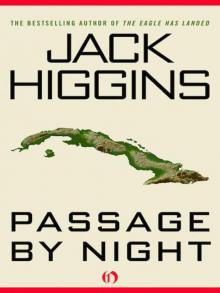 Passage by Night (v5)
Passage by Night (v5)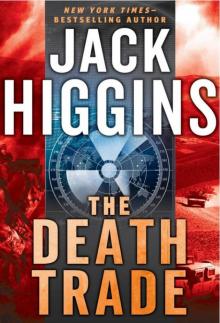 The Death Trade sd-20
The Death Trade sd-20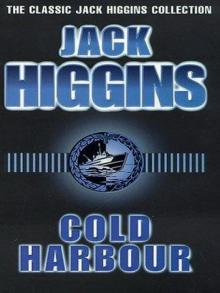 Cold Harbour
Cold Harbour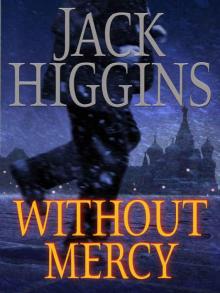 Without Mercy
Without Mercy Solo (Aka the Cretan Lover)(1980)
Solo (Aka the Cretan Lover)(1980) First Strike
First Strike Confessional - Devlin 03 (v5)
Confessional - Devlin 03 (v5)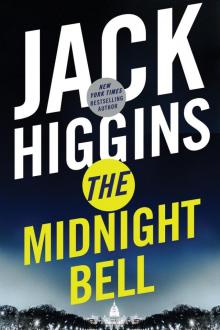 The Midnight Bell
The Midnight Bell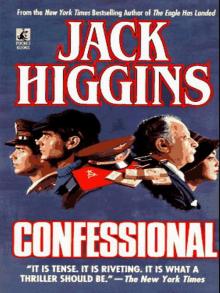 Confessional
Confessional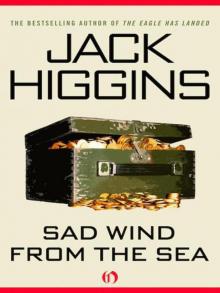 Sad Wind from the Sea (v5)
Sad Wind from the Sea (v5)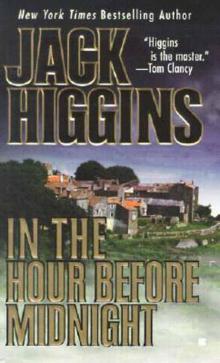 In The Hour Before Midnight aka The Sicilian Heritage
In The Hour Before Midnight aka The Sicilian Heritage Wrath of the Lion
Wrath of the Lion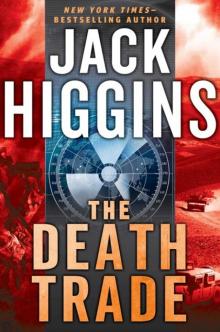 SDillon 20 - The Death Trade
SDillon 20 - The Death Trade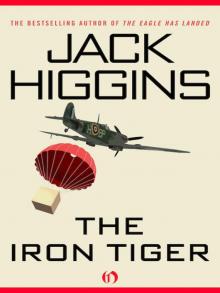 the Iron Tiger (1974)
the Iron Tiger (1974)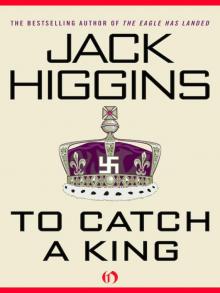 To Catch a King
To Catch a King Bloody Passage (1999)
Bloody Passage (1999) Wrath of the Lion sd-8
Wrath of the Lion sd-8 Sharp Shot
Sharp Shot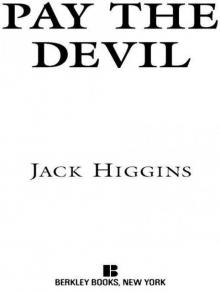 Pay the Devil (v5)
Pay the Devil (v5) A Devil Is Waiting
A Devil Is Waiting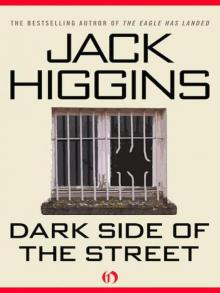 Dark Side of the Street - Simon Vaughn 01 (v5)
Dark Side of the Street - Simon Vaughn 01 (v5)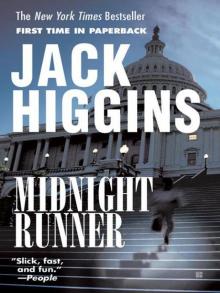 Midnight Runner - Sean Dillon 10
Midnight Runner - Sean Dillon 10 Wrath of God
Wrath of God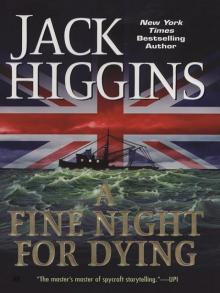 A Fine Night for Dying
A Fine Night for Dying Hell Is Too Crowded v5)
Hell Is Too Crowded v5)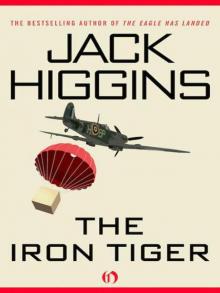 the Iron Tiger (v5)
the Iron Tiger (v5)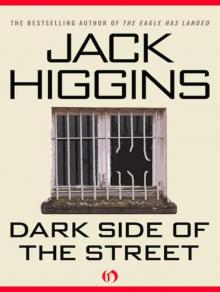 Dark Side of the Street pc-5
Dark Side of the Street pc-5 Hell Is Always Today
Hell Is Always Today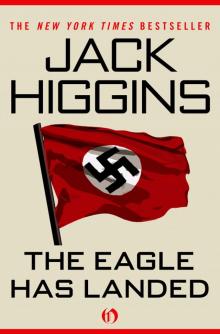 Eagle Has Landed
Eagle Has Landed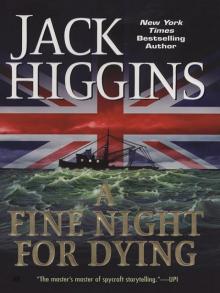 A Fine Night for Dying pc-6
A Fine Night for Dying pc-6 the Last Place God Made (v5)
the Last Place God Made (v5)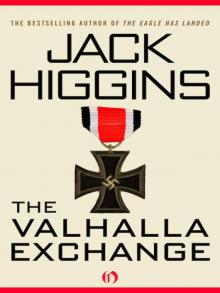 the Valhalla Exchange (1976)
the Valhalla Exchange (1976)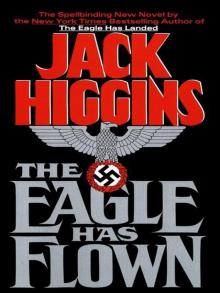 The Eagle Has Flown
The Eagle Has Flown Sure Fire
Sure Fire Pay the Devil (1999)
Pay the Devil (1999) Memoirs of a Dance Hall Romeo
Memoirs of a Dance Hall Romeo![a Prayer for the Dying (1974)[1] Read online](http://i1.bookreadfree.com/i1/04/02/a_prayer_for_the_dying_19741_preview.jpg) a Prayer for the Dying (1974)[1]
a Prayer for the Dying (1974)[1]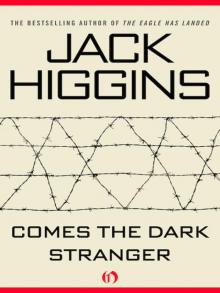 Comes the Dark Stranger
Comes the Dark Stranger Dark Side Of the Island (v5)
Dark Side Of the Island (v5)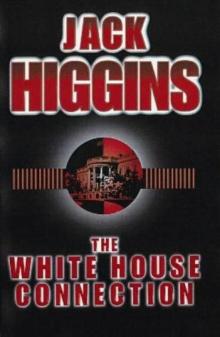 The White House Connection sd-7
The White House Connection sd-7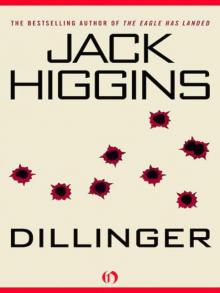 Dillinger (v5)
Dillinger (v5) Eye of the Storm
Eye of the Storm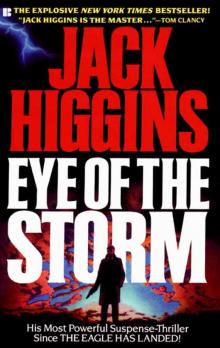 Eye Of The Storm aka Midnight Man
Eye Of The Storm aka Midnight Man A Darker Place
A Darker Place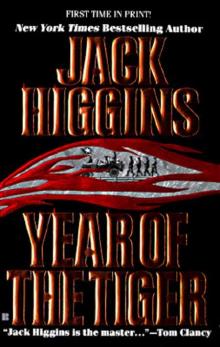 Year Of The Tiger
Year Of The Tiger Death Run
Death Run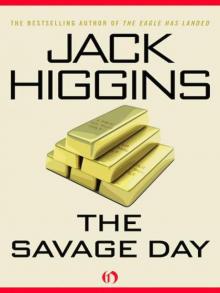 the Savage Day - Simon Vaughn 02 (v5)
the Savage Day - Simon Vaughn 02 (v5) Bloody Passage (v5)
Bloody Passage (v5) The Bormann Testament
The Bormann Testament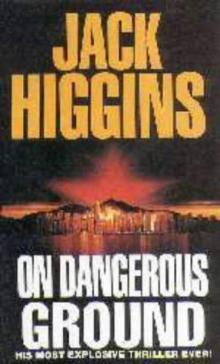 On dangerous ground sd-3
On dangerous ground sd-3 Dark Justice
Dark Justice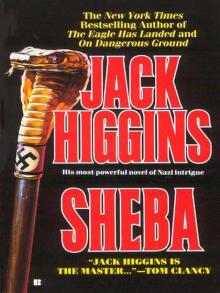 Sheba
Sheba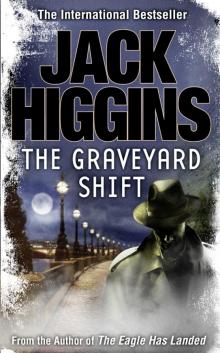 The Graveyard Shift
The Graveyard Shift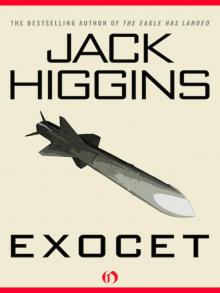 Exocet (1983)
Exocet (1983) The Wolf at the Door
The Wolf at the Door The wolf at the door sd-17
The wolf at the door sd-17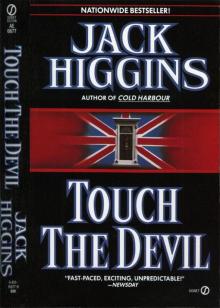 Touch The Devil
Touch The Devil The President’s Daughter
The President’s Daughter A Prayer for the Dying (v5)
A Prayer for the Dying (v5)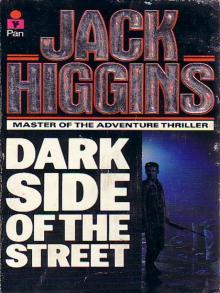 Dark Side Of The Street
Dark Side Of The Street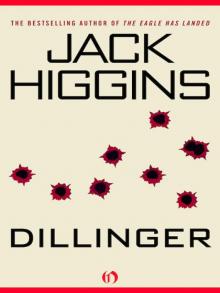 Dillinger (1983)
Dillinger (1983)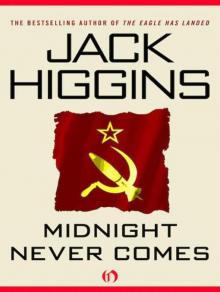 Midnight Never Comes pc-4
Midnight Never Comes pc-4 Hell Is Too Crowded (1991)
Hell Is Too Crowded (1991)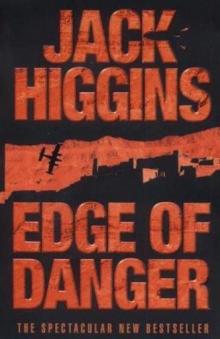 Edge of Danger sd-9
Edge of Danger sd-9 The Thousand Faces of Night (v5)
The Thousand Faces of Night (v5)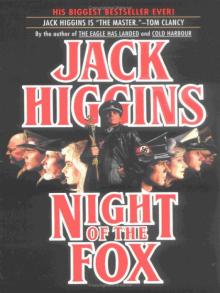 Night Of The Fox
Night Of The Fox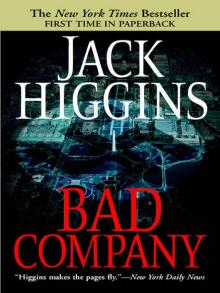 Bad Company
Bad Company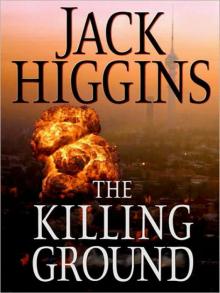 The Killing Ground
The Killing Ground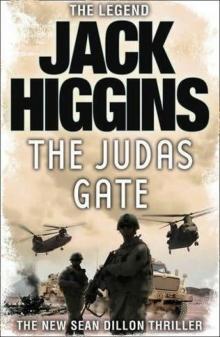 The Judas gate sd-18
The Judas gate sd-18 The Thousand Faces of Night (1961)
The Thousand Faces of Night (1961) Solo (Aka the Cretan Lover) (v5)
Solo (Aka the Cretan Lover) (v5)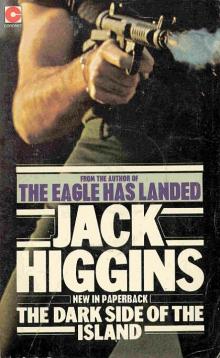 The Dark Side Of The Island
The Dark Side Of The Island A Devil is vaiting sd-19
A Devil is vaiting sd-19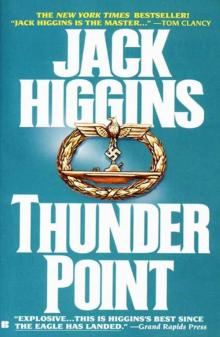 Thunder Point
Thunder Point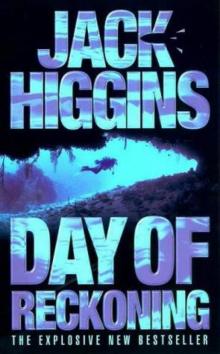 Day of Reckoning sd-8
Day of Reckoning sd-8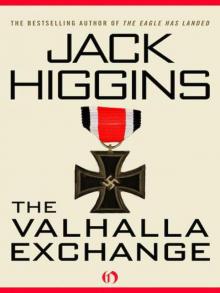 the Valhalla Exchange (v5)
the Valhalla Exchange (v5)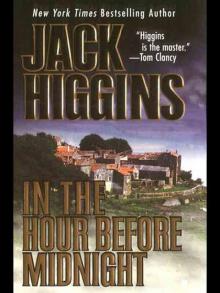 In the Hour Before Midnight
In the Hour Before Midnight The Bormann Testament (The Testament of Caspar Schultz)
The Bormann Testament (The Testament of Caspar Schultz) The Judas Gate
The Judas Gate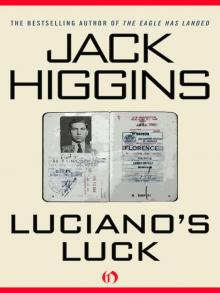 Luciano's Luck
Luciano's Luck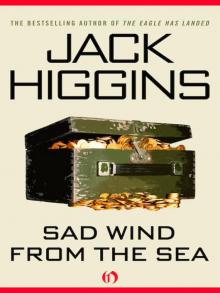 Sad Wind from the Sea (1959)
Sad Wind from the Sea (1959)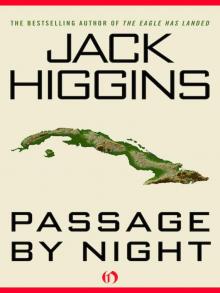 Passage by Night (1987)
Passage by Night (1987)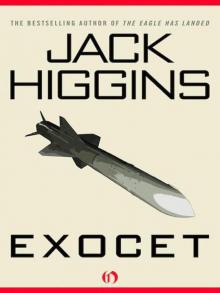 Exocet (v5)
Exocet (v5)